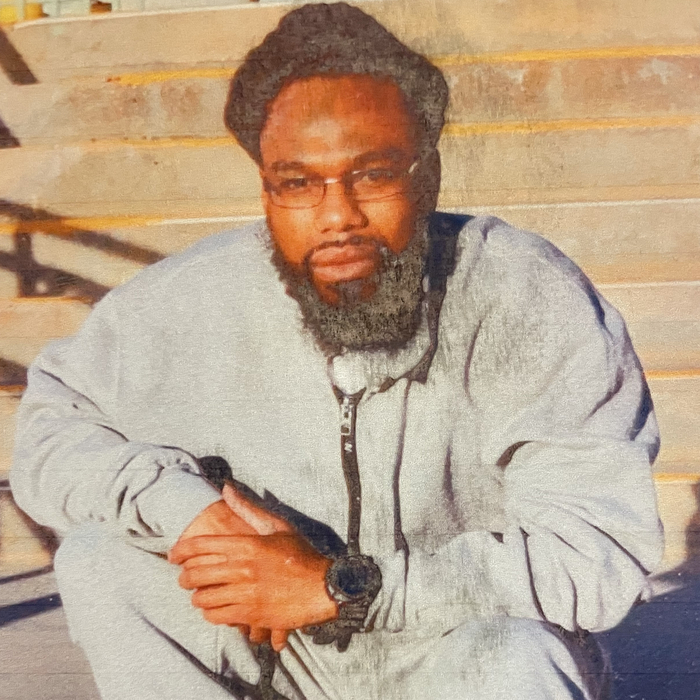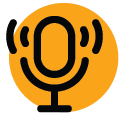***
I grew up in Ward 8 (Barry Farms), DC; lived there all of my life – with the exception of 1998, when my mother put a down payment on a house in Fairfax, VA, and I stayed there for a few months. She told me she wanted a change for me and my brothers. I have five brothers and had a sister. But she died during surgery for a liver transplant when she was 6 (I was 7 at the time). My sister’s death did something to the whole family.
I tried the Virginia school system, but it wasn’t ready for my behavior. I was very energetic, plus they didn’t do anything about my real issue, that I was illiterate. I kept being put out of school. Most of the time I didn’t go to school anyway; I’d catch the train to DC and wouldn’t make it back in time to get to school. My mother was at work, so she couldn’t do much. After the courts got on her for me not going to school, she got on me. But I needed my father, and he was in jail for selling drugs. I was reluctant to accept any other man as a father figure. I had a problem with every other man my mother dealt with.
Death after death
When I look back, it seems like it was death after death: my paternal grandmother in 1990; my little sister in 1992; my older cousin in 1994, after she got shot up; two cousins in 1995 and 1996, when they were shot too; two homies in 1997 and 1998, also shot; my paternal grandfather in 2000 (thankfully, of old age); another two homies in 2002 and 2003—yep, shot. I didn’t know how to deal with all the losses. Nobody talked about it.
When I did go to school one day, the police came and locked me up. But I was sent to a place that didn’t stop you from leaving; the institution would just put out a warrant for you. So, I left the first day and talked six others into going with me. The streets had a hold on me.
From that point on, I was all in. I sold weed and crack and got into robbing. I had always loved guns. I stayed with family members or my girlfriend’s parents. I got my first robbery charge in 2004, which sent me to prison until 2010. While I was there, I taught myself how to read, write and do a little math. But when I got out, I went right back by the end of the year, for assault with intent to kill.
Change point
My change point was in 2018. I realized I wasn’t normal, nor were the things I was doing. For example, hitting dudes in the head with locks, stabbing people for next to nothing, fighting just because I could. I thought I knew everything; no one could tell me anything. I interpreted everyone else’s actions as disrespecting me. I had a problem with authority. You could say I was antisocial and a narcissist; I had no problem-solving skills or patience. I couldn’t deal with emotions. I was acting the same way as when I was 15.
But then, one day when I was in the SHU (special housing unit, or solitary confinement), I called my oldest brother to tell him I was in the hole again. He asked me, “When are you going to grow up?!” I responded, “Bruh, what the fuck you talking about?” He said, “Every time I turn around, you’re in the hole.” I said, “I didn’t even do nothing this time.” He reesponded “You don’t ever do anything. Grow the fuck up. You’re doing the same thing over and over.” I was sick because he was right – even though that time the cops [guards] had planted a knife on me; it wasn’t mine. When I got off the phone, I was mad. But I knew he was right. I thought about my life, how messed up it was, and all the years I had given to the streets and jail. I told myself, “Jim, you got to put your life together and make some changes.” I was sick that the brother I loved looked at me like I was wasting my life.
I thought about what I would do if I was released the next day. I owned nothing so I’d be going home to nothing. I didn’t even own a pair of shoes. I had no job skills. I thought, I can’t even deal with the small problems in here. How would I deal with them on the streets? That day, I decided to make some serious changes in my life, even if that meant asking for help from family, friends or professionals. I wrote all my ex-girlfriends and told them I’d like to fix our dysfunctional relationships. I wrote almost every address I had to try to right my wrongs and apologize for whatever I had done to them. I asked them to help me when I needed it.
When you have love in your heart for yourself, you can show compassion for others.
jim johnson
Getting to know my father was big because I saw a lot of me in him. Little did know that my father gave me all his traits. The more I communicated with my dad, I more I picked up on the things he did that I did. I pointed them out to him so we could work on our bad habits together. For example, I had anger issues. I think a lot of my problems stemmed from me being angry all the time. I talked to my mother about it and she told me, “It’s natural to get angry, but it’s how you use your anger. Anger is just one of your emotions.” So, from then on, whenever I got angry, I’d exercise, which was a great release. Other times, when I felt myself about to get violent, I’d call my best friend Ashley and tell her that people were making me mad. She’d hear it in my voice. She’d tell me the same thing every time: “Jim, nobody can make you mad. You make yourself mad.” Once I got that in my head, I stopped letting everything get to me. I used my family and friends as my therapists.
One thing I’ve learned about people, and thus myself, is that people who are angry all the time are also depressed. They hate other people because they hate themselves. When you have love in your heart for yourself, you can show compassion for others. I feel love is the cure for hate. I’ve had to learn patience and self-control, and I’m still working on me. Talking about things helps me the most. I think all of us need the people we trust to be an ear/helping hand. Building love for yourself helps too, because once I really started to love myself, I started loving people for just being themselves. I started trying to look for the good in other people.
Still in the hole, but not for long
It’s crazy that after all the changes I made, I still find myself in the hole right now. But you see, in prison, DC dudes must protect each other. You must take all threats seriously, if you don’t want to go home in a box. And while I am only 5’3”, 135 pounds, I can move like I’m 7 feet tall and 350. And I will if I feel I have to. So, soon, I’ll be on my way back to the SMU (special management unit), where I’ve been twice before.
Do I want to go back to a place where I’m in a cell 24 hours a day with another man for nine to 12 months without a break from him? Absolutely not. But I’ve changed my outlook now to better make it out of those places. I look for the good and don’t let them suck out the happiness that’s in me. I push out good energy and that’s what comes back to me. I read and write too, and that is a form of release. I try to read every book that can teach me how to structure a business plan so I can stand on my own feet when I finally get my chance to be free. I’m going to order endless books to try to learn as much as I can; I won’t allow any of the time to be dead time.
You know what would help us help us in here and on the streets? To be able to learn skills thare are actually marketable, like computers, both hardware and software. We need to know how to put computers together, fix them, develop our own software. CDL classes too. Some prisons have CDL classes but they’re BS. We need truck simulators, where you’re in front of the screen with the steering wheel, learning how to drive the trucks you read about. And cooking and baking classes.
But whether they help me or not, I refuse to come back to jail once I get out. This is it!




